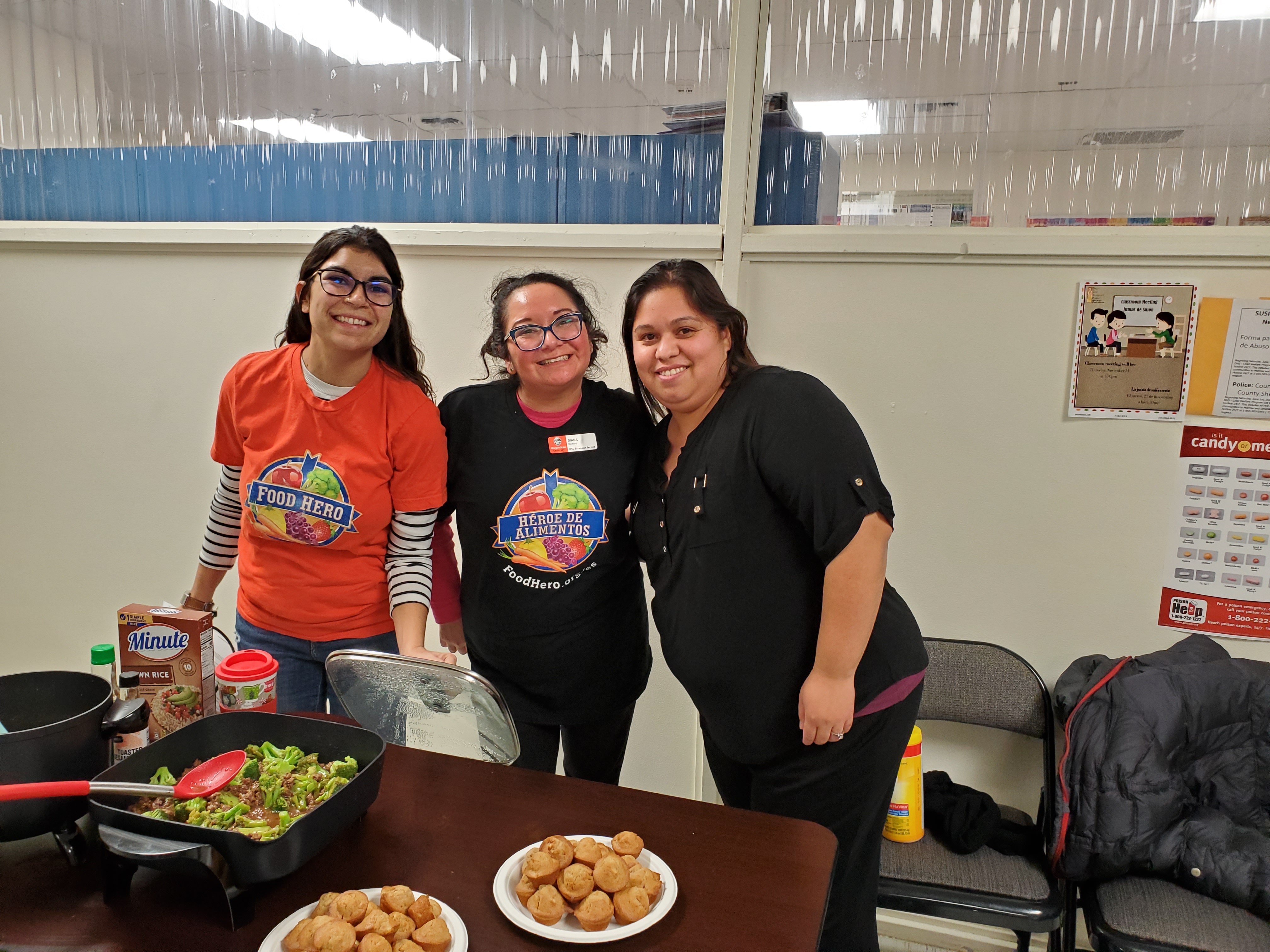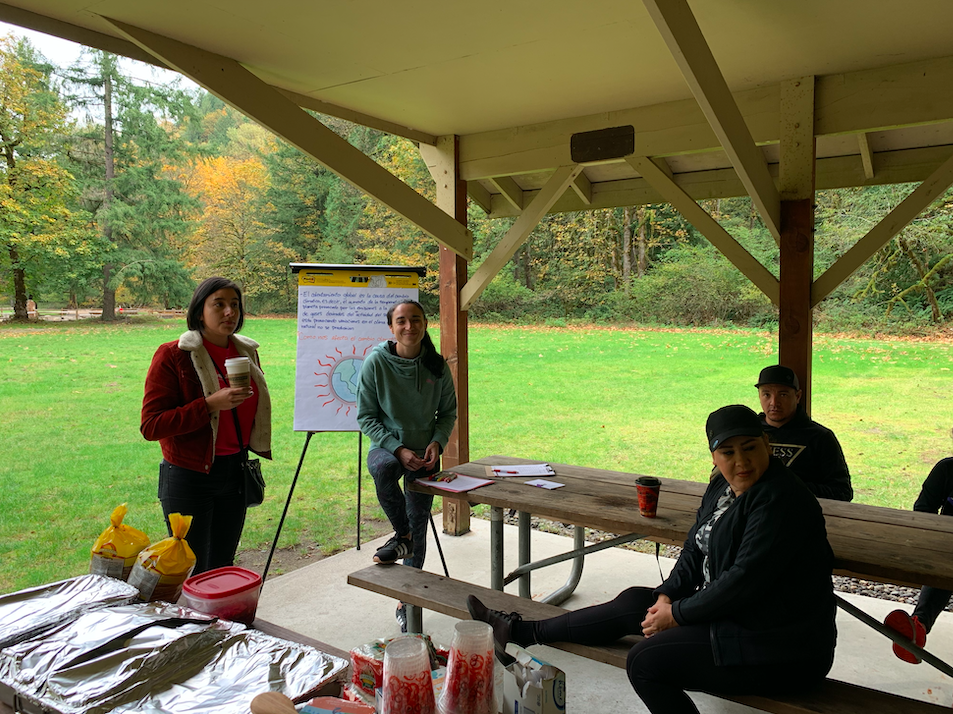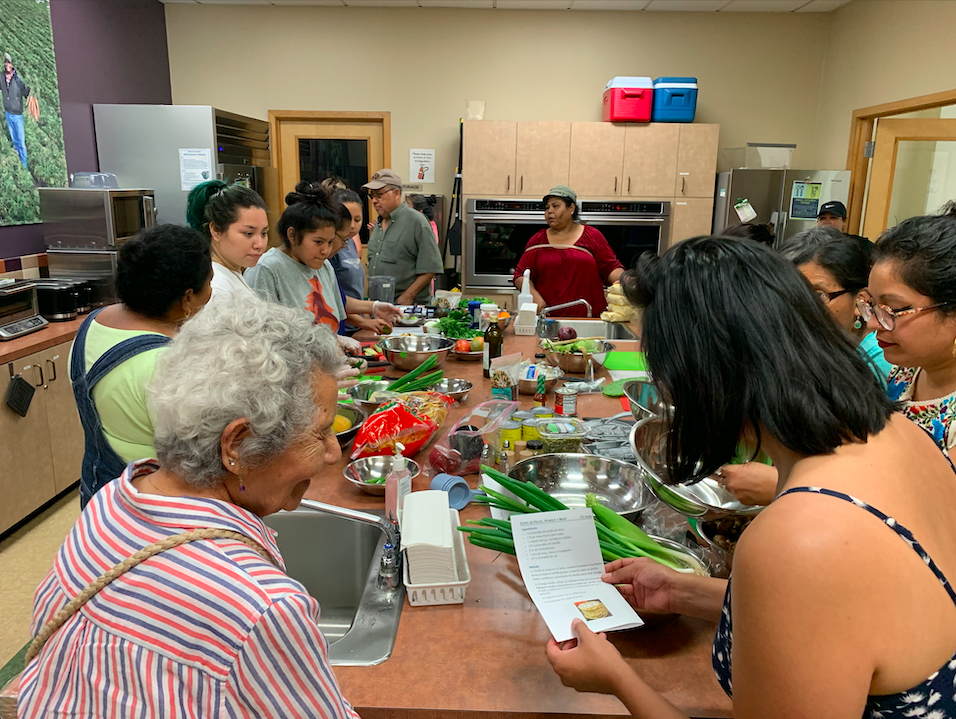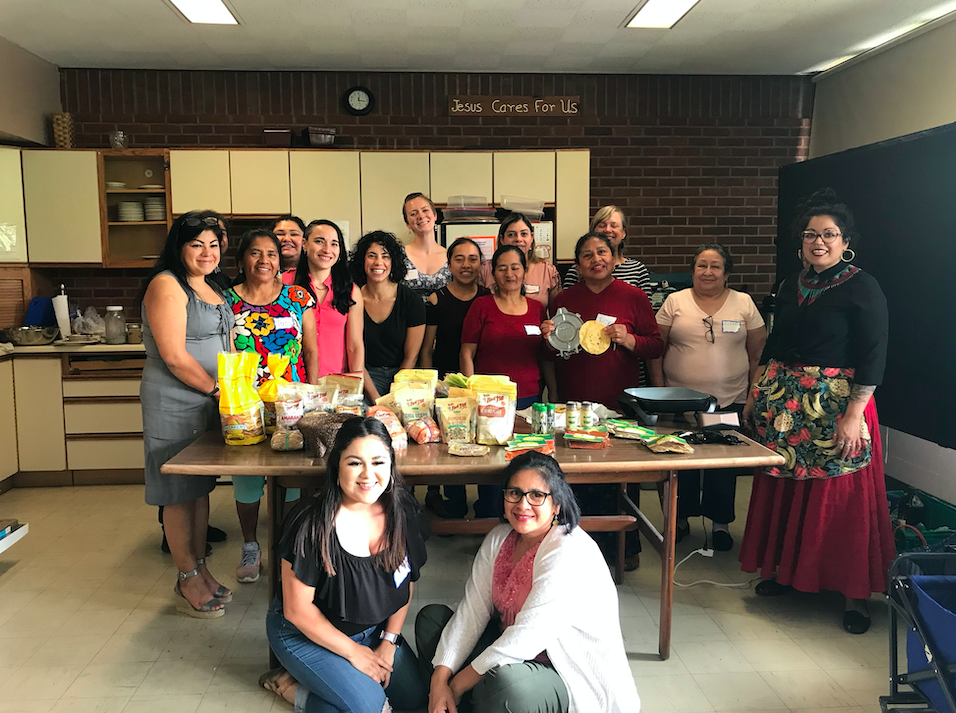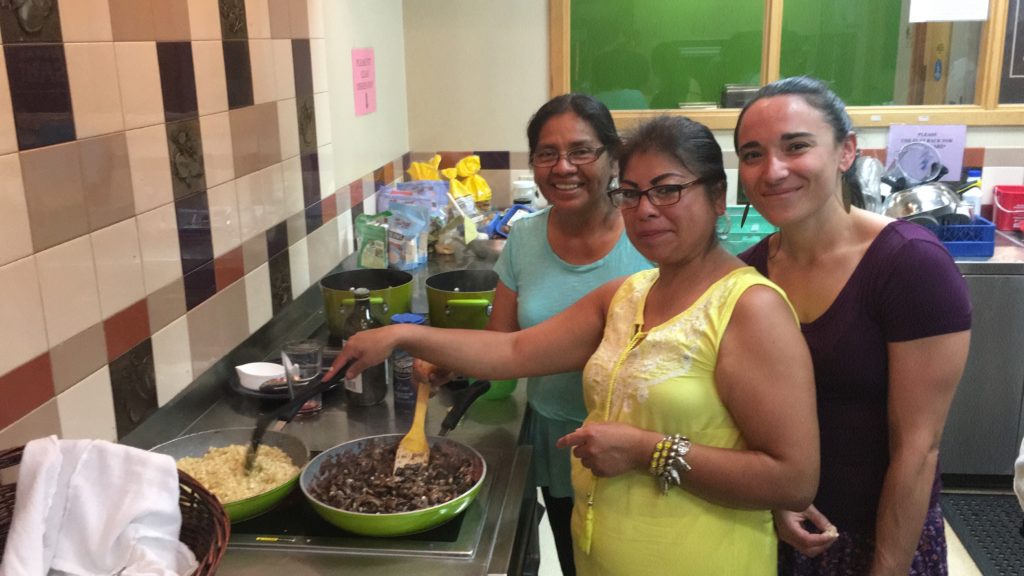After giving Community Classes, we had the opportunity to interview some of the participants, who expressed their appreciation for how the sessions were organized. They indicated having learned a lot about epigenetics, social determinants of health, and acculturation. They mentioned that they have made small but important changes, such as eating one more vegetable/fruit per meal. Many participants consider that the barriers they now face relate to changing their kids’ diets, finding the time to prepare meals, and locating food pantries with fresh vegetables/fruit. They discussed the best strategies for eating healthy food despite the fact that markets are far away from their neighborhoods. On the other hand, they have succeeded in making changes such as avoiding sugary drinks like soda and juice and selecting corn, not flour, tortillas.
Here are some quotes they shared with us:
“The facilitators motivated me to eat better.”
“This was a very unique class and I enjoyed cooking together during one of the sessions.”
“We were interested in the lessons about genetics.”
“ I learned how to calculate sugar consumption and not to overfeed my children. Before, I used to force my child to eat. I learned that I don’t have to do that. Now, I let him decide when he is full.” “I also started making a shopping list. This is a great way of saving money, making healthy choices and planning my menu.”
We asked, “How can Familias en Accion support your Community?” They gave the following suggestions:
Keep giving nutrition classes, maybe add a session about time management, collaboration with other organizations to provide more education about vegetables/fruit, and how to cook seasonal meals.
“What are some necessary resources for the community?”
Access to resources such as help paying electric bills, education re. their rights and food equity, classes on how to keep kids healthy, making better choices regarding families and kids, knowing their immigration rights.
Trainers reported that the classes were very successful and lasted an appropriate amount of time, being neither not too long nor too short. Videos were beneficial and the “dinámicas” (activities) were very effective at engaging participants. Trainers felt that participants had fun while learning and sharing information about their traditional recipes.
We had planned to conduct Community Classes and two Train-the-Trainers workshops in Spring 2020, but due to COVID-19 we had to adjust our plan and respond to the urgent need of our Latino/x/e communities for food security. We hope to resume Train the Trainers Seminars and Community Classes soon.
